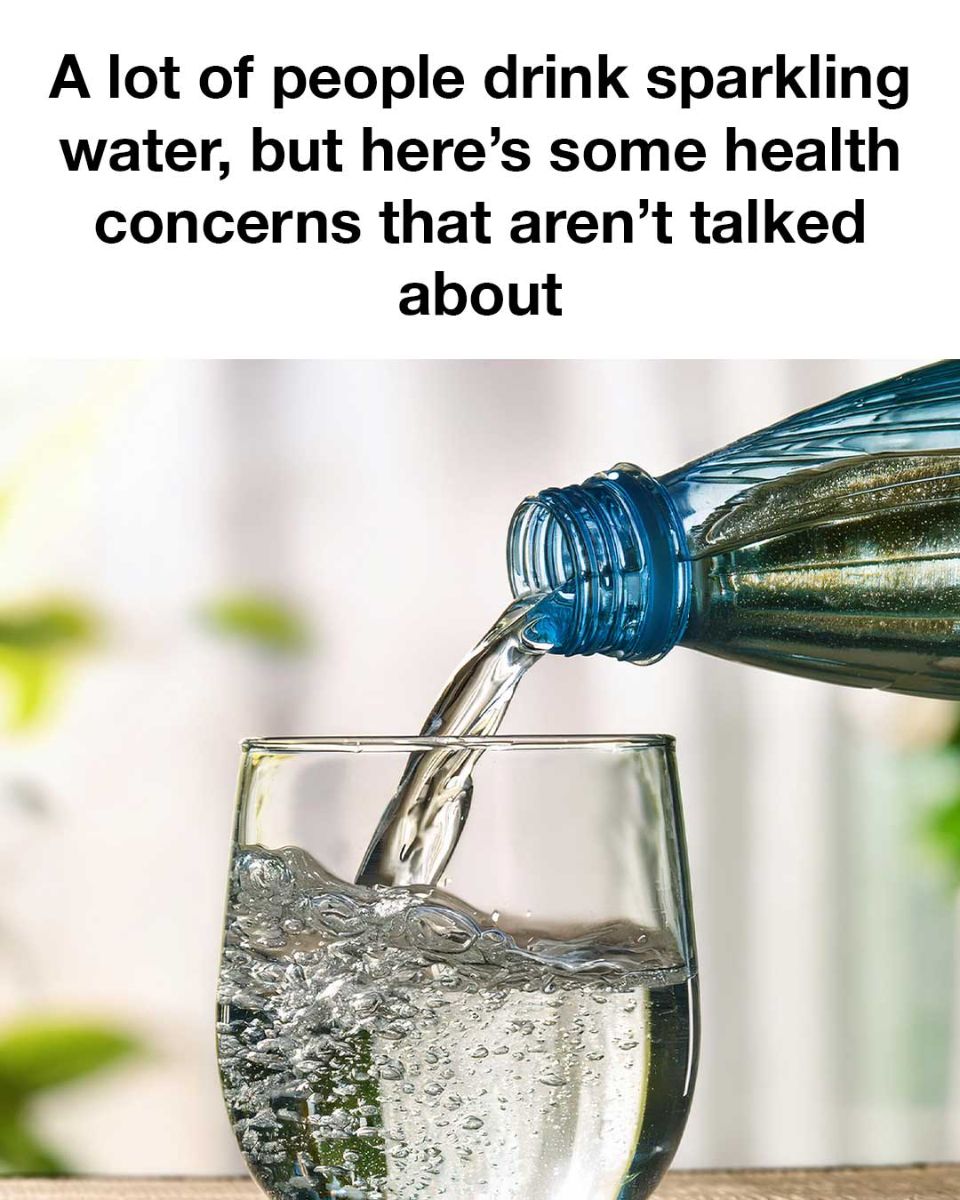1. Dental Health: Carbonation and Enamel Erosion
Carbonation creates carbonic acid when CO₂ dissolves in water. This can contribute to the erosion of dental enamel over time, leading to increased sensitivity and a higher risk of cavities. Although sparkling water is less acidic than sodas or fruit juices, regular consumption can still have an impact on oral health.
Tip: Rinse your mouth with plain water after drinking sparkling water to help neutralize the acid and protect your enamel.
2. Digestive Issues: Bloating and Gas
The CO₂ in sparkling water can lead to bloating, gas, and discomfort in some people. This is especially true for individuals prone to gastrointestinal conditions like irritable bowel syndrome (IBS). The release of carbon dioxide in the digestive tract may aggravate symptoms like bloating, cramping, and excessive gas.
Tip: If you suffer from digestive issues, consider monitoring your intake and opting for still water if carbonation worsens symptoms.
3. Bone Health: Myth vs. Reality
There’s a long-standing myth that carbonated beverages, including sparkling water, can decrease bone density and lead to osteoporosis. However, research has shown that plain sparkling water does not negatively affect bone health. The real concern lies with sugary sodas and colas, which can lead to reduced calcium absorption due to their high phosphoric acid content.
4. Acidity: Effects on the Body
Although sparkling water is less acidic than sodas, its mildly acidic nature can still pose issues for people with acid reflux or sensitive stomachs. The slight acidity may exacerbate symptoms like heartburn, so individuals with acid-related digestive issues should consume sparkling water in moderation.
5. Artificial Additives: Sweeteners and Flavorings
Not all sparkling waters are created equal. Some varieties may contain artificial sweeteners, flavorings, or added sugars, which can offset the health benefits. These additives may contribute to allergic reactions, metabolic changes, or even weight gain over time.
Tip: Choose plain or naturally-flavored sparkling waters to avoid artificial ingredients.
Hydration: Is Sparkling Water as Effective as Still Water?
While sparkling water hydrates just as effectively as still water, some studies suggest that the gas content may make it slightly less hydrating in some cases. Nonetheless, if sparkling water helps you stay hydrated and away from sugary drinks, it’s still a better choice.
Safe Sparkling Water Consumption Tips
To enjoy sparkling water while minimizing any potential risks, here are a few recommendations:
Moderation is Key: Limit your intake to a few servings per week to avoid potential dental or digestive issues.
Opt for Plain or Naturally-Flavored Varieties: Avoid artificial additives, sweeteners, or added sugars.
Rinse Your Mouth After Drinking: Help protect your teeth by rinsing with plain water after consuming sparkling water.
Consider Alternatives: Infused still water, herbal teas, or coconut water are great hydration alternatives if you’re concerned about potential issues with carbonation.
Conclusion: Making Informed Choices
Sparkling water can be a delicious and healthier choice compared to sugary sodas, but it’s important to be mindful of the potential risks. By understanding the health concerns associated with carbonation, you can make informed decisions and enjoy sparkling water in moderation. Choose plain or naturally-flavored varieties, and if you experience any negative symptoms, adjust your consumption accordingly.
ADVERTISEMENT
